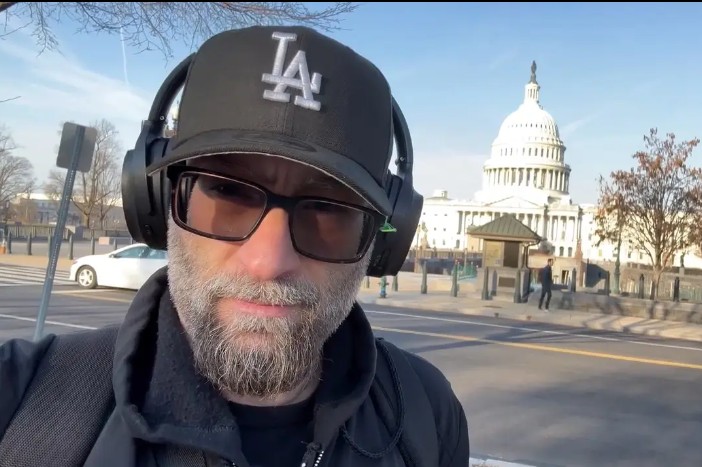VEM MILLER ASSASSIN?

BY THE LEGAL EAGLE
VEM Miller’s arrest sent shockwaves through political circles, particularly among those who identified as allies of former President Donald J. Trump. Despite the gravity of the charges, many questioned whether the authorities had conducted a thorough investigation before jumping to conclusions. The rush to label Miller as an enemy of Trump seemed to stem more from political narratives than from concrete evidence, leading some to wonder if this was a case of misguided justice rather than genuine accountability.
Miller himself has maintained that he is a staunch supporter of Trump, emphasizing that he would never harm the former president. This assertion raises critical questions about the motivations behind the accusations. Were the authorities simply looking for a scapegoat, or was there a deeper agenda at play? As details of the case emerged, it became increasingly apparent that the prosecution might have overlooked key evidence that could exonerate Miller and clarify his relationship with Trump.
Witnesses close to Miller have come forward, asserting that he has consistently expressed admiration for Trump’s policies and leadership style. This testimony stands in stark contrast to the portrayal of him as a potential threat to the former president. It seems plausible that the authorities may have misinterpreted Miller’s outspoken political views as hostile, thereby framing him in a light that fits their narrative rather than reflecting the truth of his intentions.
Moreover, the media coverage surrounding Miller’s arrest has been less than balanced. Sensational headlines often overshadow the nuances of the case, painting a picture of a conspiratorial plot without sufficient evidence. This phenomenon raises ethical concerns about how narratives are shaped in the public domain and the implications for individuals like Miller, whose lives can be irrevocably altered by such portrayals.
Critics argue that the case against Miller exemplifies a broader trend in which the political climate influences legal proceedings. In an era where partisan divides are more pronounced than ever, the risk of justice being swayed by political bias is alarmingly high. If the authorities indeed acted hastily, they may have not only damaged Miller’s reputation but also undermined the very foundations of fair legal process.
In light of these considerations, it becomes imperative for investigators to revisit the evidence and the motives behind Miller’s accusations. A thorough and impartial review could reveal the truth and restore faith in the justice system. As Miller continues to assert his allegiance to Trump, the question remains whether the authorities will take the necessary steps to rectify their initial misjudgments and ensure that justice is served fairly, rather than politically.
The sovereign citizen movement, which has gained notoriety in recent years, is rooted in the belief that individuals can declare themselves independent of government laws and regulations. Members often reject the legitimacy of government authority, leading to confrontations with law enforcement. Miller’s actions exemplify the extreme manifestations of this ideology, where individuals feel justified in taking violent measures against perceived government overreach. This incident serves as a stark reminder of the ongoing challenges law enforcement faces in dealing with radicalized individuals who may be motivated by fringe beliefs.
Miller’s possession of fake identification adds another layer of complexity to the case. Such documents are often used by individuals seeking to evade law enforcement or carry out illicit activities without being detected. The fact that he was armed further amplifies the risks associated with his planned actions. This aspect of the case highlights the importance of robust measures to combat identity fraud, particularly among those who may pose a threat to public safety. Authorities are now investigating the sources of Miller’s weaponry and how he managed to obtain and utilize forged identification.

The attempted assassination of a former president is a serious offense with far-reaching implications. It not only endangers the individual targeted but also poses risks to national security and public safety. The United States has a long history of politically motivated violence, and this incident serves as a reminder of the ever-present threats faced by public figures. It also raises questions about the effectiveness of current security measures in protecting high-profile individuals from extremist threats.
In the aftermath of Miller’s arrest, discussions around the sovereign citizen movement and its implications for public safety are likely to intensify. Law enforcement agencies and policymakers must reassess strategies to address the radicalization of individuals within such movements. Furthermore, this incident highlights the need for increased public awareness regarding the signs of extremist behavior and the importance of reporting suspicious activities. As the nation grapples with the implications of this case, it remains crucial to prioritize safety and security while addressing the root causes of such radical ideologies.
Vem Miller bailed out for a mere $5,000.00 USD.



